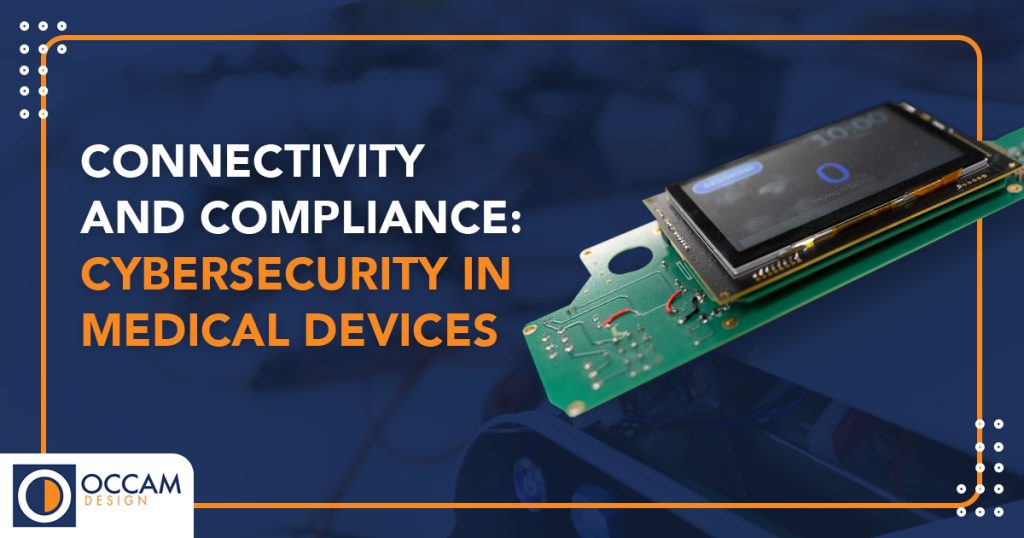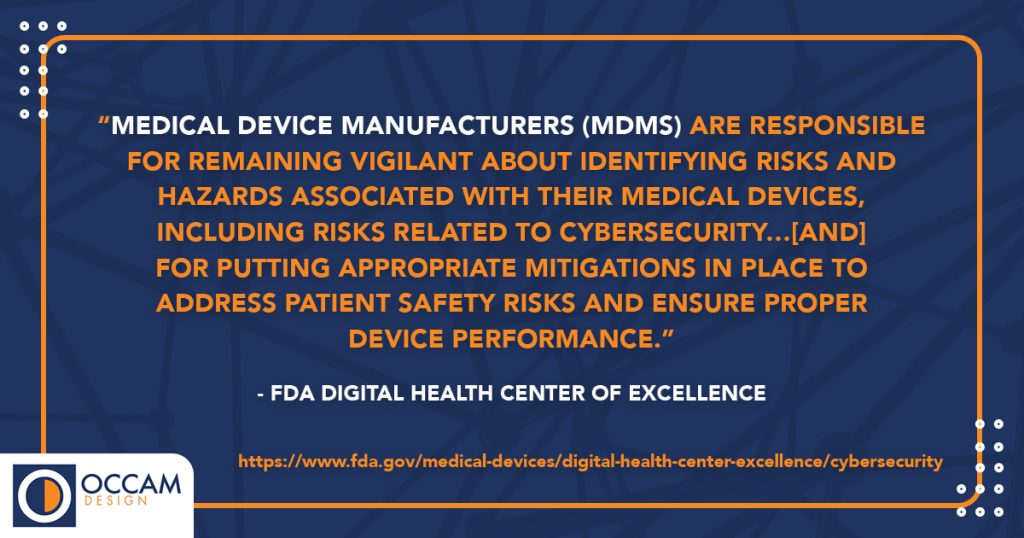
When you approach medical device design, cybersecurity may not be at the top of your mind, but it should be. Medical devices are increasingly interconnected to external digital technology, and the function and usability of your device can depend on secure, consistent connectivity.
As connectivity for medical devices increases, a robust and proactive cybersecurity plan should be an integral part of your design considerations. Protecting patient data is a legal and ethical requirement, and maintaining device integrity is critical for ensuring that your medical device is both usable and safe.
Cybersecurity: A Question of Patient Safety
A connected medical device, one that exchanges data and directions with other devices or networks (including the Internet), is a device that depends on strong cybersecurity measures to ensure it will function consistently and constantly. You know you want your connected medical device to be reliable and effective, as you fully understand that lives can depend on it.
If someone maliciously accesses a medical device while it is supporting physical functions for a patient, disruption or disabling of the device could easily be harmful or deadly. Manufacturers have a responsibility to prioritize cybersecurity measures from the very start of development to protect patients’ safety and data throughout their use of any medical device.
Regulatory Compliance in Cybersecurity
It’s important to consistently check on the most up-to-date cybersecurity regulations throughout your medical device design process. These regulations will determine whether a device is approved for use, and failure to plan for cybersecurity vulnerabilities can result in regulatory sanctions, recalls, and irreparable damage to a manufacturer’s reputation.
The FDA, acting as the approving body for medical devices in the US, regularly releases amended and improved regulations on medical device cybersecurity. In addition to cybersecurity regulations and updates, the FDA provides robust playbooks for incident responses and threat modeling that can be used to inform your cybersecurity policy and test your devices. Similar authorities are in place in other countries, and additional entities, like the International Medical Device Regulators Forum, release guidance on cybersecurity for medical devices.
It’s crucial to stay up-to-date on these regulatory requirements and to integrate them into your device design process. Working closely with partners fluent in the medical device regulatory approval process, like the experts at Occam Design, can help you maintain regulatory compliance throughout your device design process.

Reputation and Trust Are Paramount for Medical Devices
A medical device manufacturer’s success hinges on its reputation; patients and healthcare providers need to be able to trust the quality of their medical devices. A failure in cybersecurity protection for a medical device will grab the attention of patients, healthcare providers, and regulatory authorities, and not in a positive way.
Protecting brand trust among stakeholders is a sound business strategy, as well as a sound medical device development strategy. Proper cybersecurity measures can prevent accidents, recalls, and failures before they happen, saving you potentially large financial losses and protecting your reputation.
Liability and Legal Risks in Medical Device Cybersecurity
While the safety concerns around medical device cybersecurity should be your top priority, failing to plan for cybersecurity risks also leaves you open to the legal ramifications of liability from patient injury or patient data loss. If you, as a manufacturer, are found liable for the damages from a malicious actor accessing a medical device, you run the risk of having to pay damages related to medical expenses, lost productivity, and emotional distress.
Preventing unnecessary expenses through a preemptive and comprehensive emphasis on cybersecurity is well worth the effort.
Competitive Advantages include Cybersecurity
There is a growing awareness among healthcare providers and patients of the importance of cybersecurity. Patients and healthcare providers alike will choose medical devices made by manufacturers that clearly prioritize cybersecurity measures. If you proactively establish high-quality cybersecurity protocols for your device, and you put effort into demonstrating that commitment to your customers and regulators alike, you stand out from the competition, making you an easy first choice within the medical device market.
Occam Design knows that cybersecurity is both an emerging issue in medical device design circles and a non-optional consideration in medical device development. We prioritize staying on the cutting edge of regulatory requirements around cybersecurity capacity in medical devices. When you partner with us, our experts can proactively enact cybersecurity measures in the design of any medical device, setting up your team for success.

Occam Design is an innovative leader in medical device design, prototyping, manufacturing, and rollout. Our team has over 30 years of experience developing and manufacturing medical devices, giving us the expertise and experience needed to make your medical device concept a regulatory-compliant reality.
